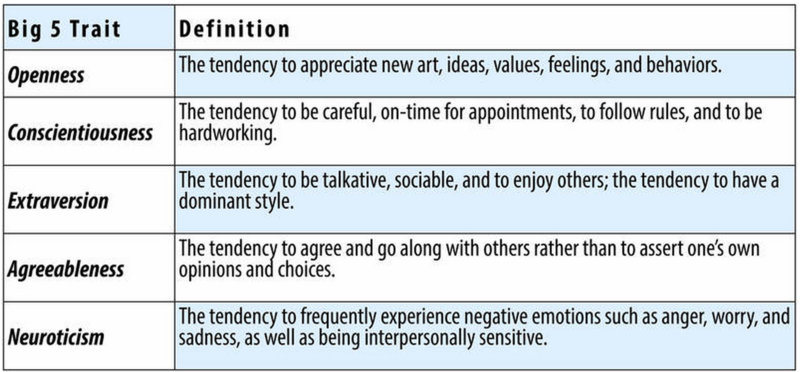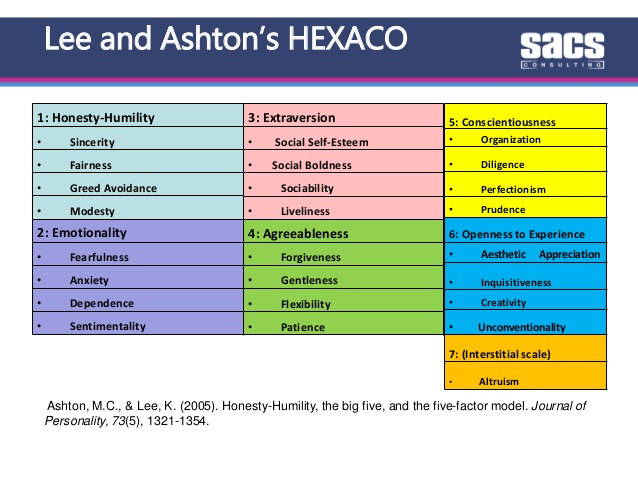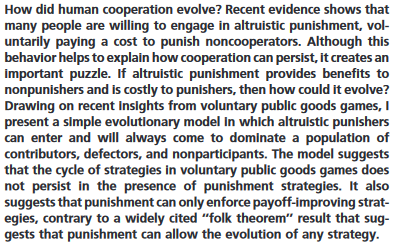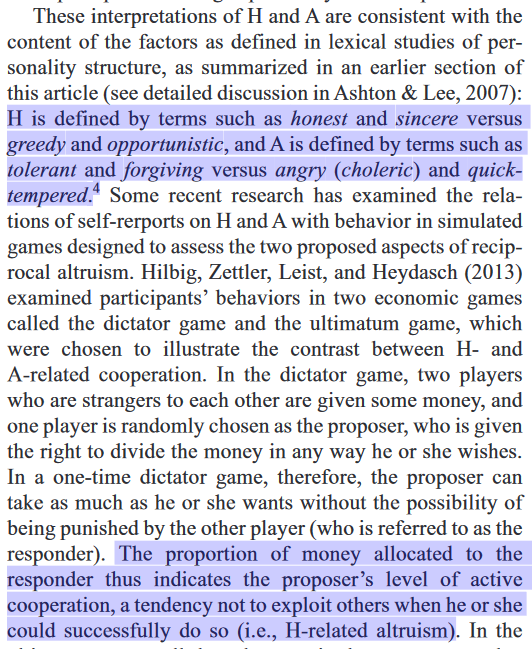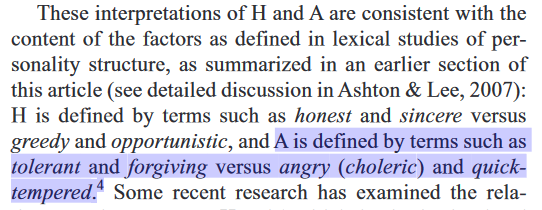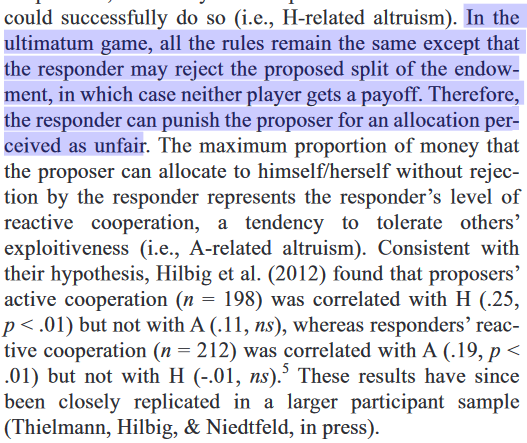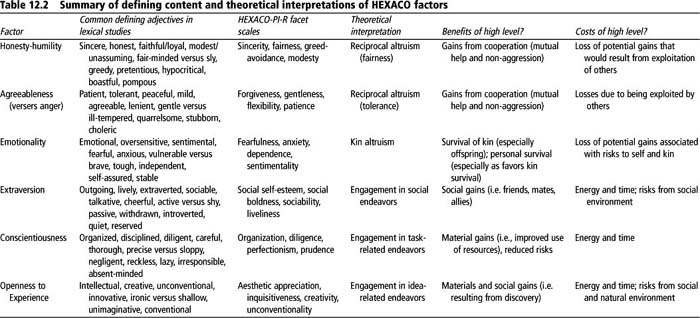Since last night I& #39;ve seen basically two responses to tRumps diagnosis among liberals: A) Attempt to take the high road and wish him a quick recovery, and B) Declare that he deserved to get COVID and that he also deserves to die from it.
1 https://twitter.com/SangAnimates/status/1312187835940655104">https://twitter.com/SangAnima...
1 https://twitter.com/SangAnimates/status/1312187835940655104">https://twitter.com/SangAnima...
The truth is that each response is based in personality traits that emerged as humans evolved from our primate ancestors during the Pleistocene, and were able to flourish by developing the ability cooperate via selection for altruism over self-interest.
2
2
Cooperation helped humans succeed by allowing groups beyond kin to collectively find and share food, care for children (human children are dependent much longer than other primates) and defend each other from aggressors.
3
3
I& #39;d venture that each of us knows at least few true altruists - people who are incredibly forgiving, generous, and kind regardless of who they& #39;re dealing with. I believe the Gen Z term for such people was "pure".
4
4
The problem with being an unconditional altruist, though, is that bad actors will tend to take advantage of you. A system with only altruists and bad actors (sociopaths) won& #39;t maintain cooperation for long. Something else is needed to keep the system going.
5
5
That missing component is people I like to call "pro-social enforcers". These are the folks who punish transgressors and non-cooperators, even though there& #39;s a cost involved in doing these things. In doing so they protect the altruists from being exploited by the sociopaths.
6
6
As it turns out, this tendency to hold non-cooperators and transgressors accountable for their actions is reflected in a personality trait called "Agreeableness". I talked a bit about personality traits in this thread on psychographic microtargeting.
7 https://twitter.com/sfhater/status/1310774106732638208">https://twitter.com/sfhater/s...
7 https://twitter.com/sfhater/status/1310774106732638208">https://twitter.com/sfhater/s...
To provide some background, personality models were initially developed using what& #39;s called the lexical approach, which holds that the traits most relevant to people& #39;s lives will become encoded in their language.
8
8
Scientists who studied personality assembled large collections of words that appeared to describe personality and applied a statistical tool called factor analysis to group them into clusters of correlated traits, called factors or dimensions.
9
9
Over the years, several personality researchers using factor analysis independently arrived at five factors of personality: Openness, Conscientiousness, Extraversion, Agreeableness, and Neuroticism, known collectively as OCEAN.
10
10
One shortcoming of this model, also known as the "Big Five" is that all of the supporting analyses were conducted using English as the study language. A team of personality psychologists from Canada became curious if this five-factor solution would repeat in other languages.
11
11
Long story short, they solved for *six* factors, and replicated this finding over a whole host of languages. The sixth factor, which pulls some traits from OCEAN Agreeableness and Neuroticism, is known as Honesty-Humility, and is key to understanding dark personalities.
12
12
So back to cooperation. Back in the early 2000s, evolutionary game theorists, behavioral economists, and neuropsychologists published a cluster of papers that began making sense of how cooperation could have evolved on a both a behavioral and a biological level.
13
13
In one experiment that utilized a "public goods" game involving real money to investigate whether participants would engage in altruistic punishment (i.e., *pay* to punish free riders), investigators found that it was common and facilitated cooperation.
14
https://scinapse.io/papers/2129135549">https://scinapse.io/papers/21...
14
https://scinapse.io/papers/2129135549">https://scinapse.io/papers/21...
In another experiment, about 60% of third parties who weren& #39;t directly harmed by non-cooperative participants still chose to punish violations, even when it was costly, showing the influence of egalitarian social norms on altruistic punishment.
15
https://scinapse.io/papers/2157228429">https://scinapse.io/papers/21...
15
https://scinapse.io/papers/2157228429">https://scinapse.io/papers/21...
Another researcher utilized an evolutionary mathematical model based on results of experiments such as those above to show how altruistic punishers could come to dominate populations and drive them toward a cooperative equilibrium point.
16
https://scinapse.io/papers/2150737844?ref-page=2">https://scinapse.io/papers/21...
16
https://scinapse.io/papers/2150737844?ref-page=2">https://scinapse.io/papers/21...
Now let& #39;s see how personality ties all of this together. Once the HEXACO model came into widespread use, researchers began applying it to fields and situations where the five-factor model hadn& #39;t yielded clear results (because it is an incomplete model).
17
17
As it turns out, both Honesty-Humility (H-H) and Agreeability are essential for cooperation in different ways. High H-H is correlated with active cooperation, the tendency to be fair and not exploit others even when the opportunity is available.
18
https://citeseerx.ist.psu.edu/viewdoc/download?doi=10.1.1.903.769&rep=rep1&type=pdf">https://citeseerx.ist.psu.edu/viewdoc/d...
18
https://citeseerx.ist.psu.edu/viewdoc/download?doi=10.1.1.903.769&rep=rep1&type=pdf">https://citeseerx.ist.psu.edu/viewdoc/d...
Agreeability (A), on the other hand, is associated with reactive cooperation, which is the tendency to tolerate (high-A) or punish, even when it& #39;s costly to do so (low-A). And because the traits H-H and A are independent, one can be both high-H-H and low-A.
19
19
Both strategies are necessary for cooperation to exist. Active cooperators set the tone and lead by example, but if there are a lot of low-Honesty-Humility people around, the cooperators end up being exploited and the system falls apart.
20
20
People with low Agreeability keep this from happening by holding selfish, exploitative people accountable. And both strategies can be amplified by becoming embedded into cultural norms and social systems, which are large-scale reflections of our human brains.
21
21
Now we& #39;re ready to re-examine reactions to tRump contracting COVID-19. You& #39;ve probably already guessed that people who wish for his safe recovery are likely high Agreeability (forgivers), while those who would be content if he died are probably low Agreeability (punishers).
22
22
And people in each camp probably have a hard time understanding the other camp. High-As might think "If I don& #39;t rise above this, I& #39;m just like him", or "People who want him to die must be mean and spiteful, and consumed by hatred."
23
23
Conversely, Low-A people may wonder "How can any sane person see what that monster has done and wish him well", or "Would you wish Hitler well if he got sick?"
It& #39;s hard for one type to understand the other because each is wired differently.
24
It& #39;s hard for one type to understand the other because each is wired differently.
24
The important thing to remember is that both responses are based on traits that are essential to fostering cooperation and human society. And maybe the two camps can come together in the mutual belief that tRump must be held accountable for his transgressions.
25
25
To end, I& #39;d like to posit a question.
Where do you think tRump himself falls on the spectrum of Honesty-Humility and Agreeableness? The image below includes descriptors for both ends of each trait as well as related benefits and costs.
26
Where do you think tRump himself falls on the spectrum of Honesty-Humility and Agreeableness? The image below includes descriptors for both ends of each trait as well as related benefits and costs.
26
If you chose Low Honesty-Humility and Low Agreeableness, you win! tRumps lifelong behavior fits descriptors such as Greedy, Hypocritical, Boastful (low H-H) and Ill-Tempered and Quarrelsome when crossed (low A).
27
27
As it turns out, the strongest predictor of dark personality (psychopathy, narcissism, Machiavellianism, sadism), which is grounded in exploiting others. When combined with low A, it predicts vengeance towards those perceived as crossing you.
28
https://www.researchgate.net/profile/Anthony_Volk/publication/284360725_Unpacking_more_evil_What_is_at_the_core_of_the_dark_tetrad/links/59e4d0880f7e9b0e1aa877a2/Unpacking-more-evil-What-is-at-the-core-of-the-dark-tetrad.pdf">https://www.researchgate.net/profile/A...
28
https://www.researchgate.net/profile/Anthony_Volk/publication/284360725_Unpacking_more_evil_What_is_at_the_core_of_the_dark_tetrad/links/59e4d0880f7e9b0e1aa877a2/Unpacking-more-evil-What-is-at-the-core-of-the-dark-tetrad.pdf">https://www.researchgate.net/profile/A...
tRump& #39;s essentially dark and dangerous personality has been noted by psychiatrists, psychologists, and academics for years, perhaps most notably in the The Dangerous Case of Donald Trump, edited by @BandyXLee1.
29 https://us.macmillan.com/books/9781250179456">https://us.macmillan.com/books/978...
29 https://us.macmillan.com/books/9781250179456">https://us.macmillan.com/books/978...
I& #39;ll be exploring dark personalities, their evolution, and how they& #39;ve come to dominate human society in future threads. Thanks for reading!
end
end
I& #39;m adding this great site @csageland shared with me, which demonstrates how trust/cooperation evolve via an interactive game. https://ncase.me/trust/ ">https://ncase.me/trust/&qu...

 Read on Twitter
Read on Twitter